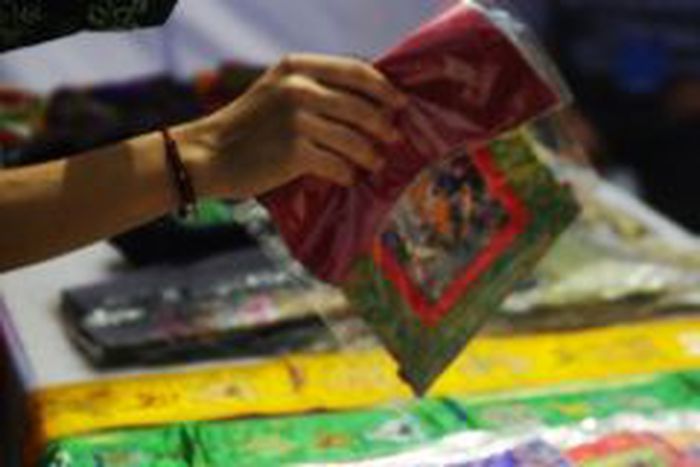
China: can ‘Soft Power’and iron fist coexist?
Published on
By Bibbi Abruzzini Photo : Santosh Thatal
“Everybody in Europe is watching China and everybody –well informed or not- has an opinion about China.
These opinions are often ambiguous; on many issues, in particular political matters, perceptions are negative; but at the same time European seem intrigued by, and attracted to, China” writes Ingrid D’Hooghe in the report ‘The limits of China’s Soft Power in Europe’. Europe’s economic crisis and cash-rich China are both under the spotlight but what are the perceptions that Europeans and Chinese have of each other?
China the magnet, the superpower, the economic Wonderland, one aspect of this transformation is progressively being explored: the way in which China is using ‘Soft power’ to improve its image with neighbours and distant countries such as Europe. The concept of ‘Soft power’ developed by Joseph Nyes describes the ability to attract and seduce rather than using threats or military force as a means of persuasion. “Seduction is always more effective than coercion, and many values like democracy, human rights, and individual opportunities are deeply seductive,” affirms Joseph Nyes.
‘Charm Offensive’ China : potential and limits
“People often conflate soft power with investment and economic development, but I define it as culture, education, and diplomacy,” said Elizabeth Economy , CFR senior fellow and director of Asia studies. China’s cultural industry, language, and traditional culture are ever increasingly viewed by many Chinese policymakers as the pillars for building ‘Soft power’ and strengthening international relations.
Back in 2005 Vice Education Minister Zhang Xinsheng already communicated the development of eight measures to boost overseas Chinese teaching for the upcoming five years. The ongoing efforts of President Hu Jintao to promote “soft power initiatives” through cultural and language programmes around the globe is building an amiable image of China apparently far from the political and economical platform.
“China’s ability to project its culture or its media is limited by the constraints on free expression within China itself,” affirmed Joshua Kurlantzick, author of ‘Charm Offensive: How China's Soft Power Is Transforming the World’. His book examines the importance of China’s recent interdependency on soft power—diplomacy, trade incentives, cultural and educational exchange opportunities— strategic techniques to project a positive national image. But what is happening behind the scenes?
A contradictory, complex China; it is difficult to react and take position with such a smart titan. Examples that left Europe (literally) speechless range from Tibet to the least known Uyghur Muslim ethic group concentrated in the oil rich northwestern Chinese province of Xinjiang. According to Amnesty International "a systematic violation of human rights has been inflicted on the Uyghurs” since the 80s. The Chinese government has been mainly accused of trying to dilute Uyghur's identity by arranging mass immigration of Han Chinese (largest ethic group in the world) and of not respecting the freedoms of citizens, including freedom of speech, assembly and information.
China and the EU
“Given the “trust deficit” in EU-China ties, the need for more communication among people is essential. Differences in their political systems, values and interests mean that people in China and Europe are unlikely to see eye to eye on many questions. But this diversity need not stop people from seeking to better understand each other,” wrote Shada Islam, Head of Policy at Friends of Europe in the document ‘EU-China: the challenge of soft diplomacy’.
To improve EU-China talks and mutual understanding Friends of Europe organises a series of events such as the recent forum ‘Culture, perceptions and media in EU-China relations’. Moreover programs such as ‘Understanding China’ co-funded by the European Commission have also been developed to improve the knowledge on China in European businesses, especially SMEs.
The latest EU-China Summit on 14 February 2012, launched the EU-China High Level People-to-People Dialogue (HPPD); implementation of the Third Pillar of the strategic partnership which is dedicated to people-to people contacts.
One of HPPD’s milestones is the current 2012 EU-China Year of Intercultural Dialogue that includes 174 activities in the field of culture, audiovisual, youth, research and multilingualism. The EU-China Year of Intercultural Dialogue should help create a stronger perception of the European and Chinese culture.



